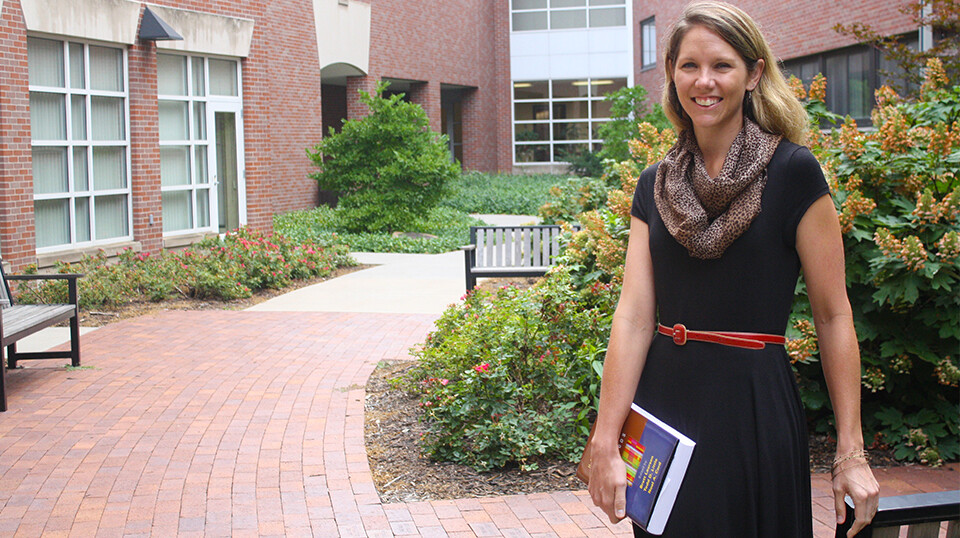
International data analysis, with its steep barrier to entry, remains uncharted territory for many researchers.
Leslie Hawley, research assistant professor with the Nebraska Center for Research on Children, Youth, Families and Schools, is applying this data to answer education policy questions — and she wants to help other researchers navigate its use.
Hawley recently attended the sixth annual International Research Conference in Cape Town, South Africa, for advanced instruction in international data analysis. She was awarded an international seed grant from UNL’s College of Education and Human Sciences to attend the five-day event and will share insight at future methodology workshops and graduate statistics courses.
“This conference gave me an opportunity to learn what other researchers are doing around the world and what kinds of questions they are asking,” Hawley said. “It gave me an even greater appreciation of international data.”
Driven by a passion for education policy, Hawley sees vast potential in analyzing international data to answer research questions. With this potential comes a corresponding pitfall — chiefly, the hurdle in learning how to appropriately use the data and navigate its special sampling techniques.
As a researcher with CYFS’ Nebraska Academy for Methodology, Analytics and Psychometrics, Hawley wants to help other researchers overcome hurdles to using international data sets. The rewards, she says, are worth it.
“There are many funding opportunities to do research with international data,” Hawley said. “It is an amazing, underused resource and provides a wealth of opportunities for many types of research questions.”
Hawley has already conducted and presented two preliminary research studies using international data from PISA — a student assessment coordinated by the Organisation for Economic Co-Operation and Development — and now plans to transition this preliminary work into manuscripts for publication in peer-reviewed journals. Using PISA, she is evaluating school accountability policies and their effects on teacher practice and student learning outcomes.
“International data offers a rich source of cross-cultural research opportunities and a mechanism by which to explore what the U.S. can learn from schools around the world,” Hawley said.
As Hawley can attest, U.S. researchers also have much to learn from colleagues around the world. Through collaborations at home and abroad, she plans to continue charting a course for the application of international data.
For more information about the MAP Academy’s upcoming events and research partnership opportunities, visit mapacademy.unl.edu/.







